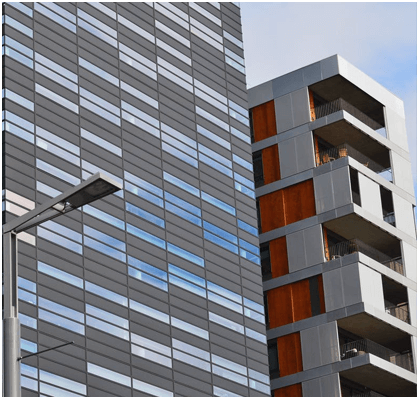So, with all of these changes, will businesses continue to survive and thrive? When “normal” life comes to a halt, what will be the impact on both landlords and tenants in commercial real estate?
How the coronavirus will impact tenants
Currently, numerous factors are creating uncertainty for tenants across the globe. For parents in particular, schools and daycares are closing, which prompts the need for time off from work to care for their children. Even with the increased flexibility of office closures and remote work, no work still means no pay, and this ultimately impact their bottomline.
Furthermore, businesses are struggling with the decrease in demand due to social distancing. Public health is encouraging businesses to shut down to help protect people from the spread of the COVID-19. In countries where it has been the worst, bars, restaurants, movie theaters, clothing stores, malls, and other similar establishments have closed. Only supermarkets and pharmacies have remained open. It was only a matter of time before the US followed these same protocols.
So, when these business owners suffer weeks (and maybe months) without business, how will they be able to pay rent to their landlords? How long is indefinitely? The same policies that will attempt to keep the public safe will place a chokehold on the ability of some to survive financially.

How the coronavirus will impact landlords
All of this uncertainty places pressure on landlords as well. Their ability to make ends meet also relies on the tenant’s ability to pay. The inability to pay rent during a pandemic is a real problem, but there are a few scenarios that may take place.
Residential real estate: For all of the people now out of work due to school and office closures, it’s become a common concern regarding how they will pay rent. In terms of evictions, some cities are now placing 90-day moratoriums on evictions and foreclosures to prevent further spread of the virus. These include New York, Austin, Boston, Miami, Los Angeles, and San Francisco. They’re also looking at options for rent help to prevent evictions.
Commercial real estate: As the coronavirus pandemic continues to impact the residential real estate market, commercial real estate in Columbus Ohio and beyond is also facing new challenges. Will commercial landlords follow suit and implement policies to support struggling tenants, such as preventing evictions for 90 days or implementing a percentage rent structure? Stay up-to-date on the latest developments with 3CRE’s expert insights and guidance.
If commercial landlords follow the same pattern as residential landlords, it looks as though there could be some flexibility in store for restaurants, clothing stores, malls, offices, etc. paying rent. Acknowledging that these locations are participating in closures due to public safety is much different than closures due to demand. For some businesses that are still up and running (supermarkets and pharmacies in particular), their landlords may consider converting to a percentage sale structure. For others, city governments are looking at how they can provide rent help to both tenants and landlords who are struggling during this crisis.
How will landlords and tenants bounce back from COVID-19?
There’s always a question after crisis or disaster — what’s next? We don’t yet know what the long-term implications are of COVID-19, but we do know that the pandemic is potentially triggering a global economic slowdown. As this passes, low interest rates may make refinancing and new acquisitions in real estate a possibility for some. The next several months will be an opportune time to purchase properties or businesses for those who haven’t been hit hard by the stock market declines, unemployment or business investment delays.
During this time of crisis 3CRE Commercial Real Estate knows that whether you’re a tenant, landlord, or business you need someone to talk to. Our lines are open for your questions, let’s get through this together.




